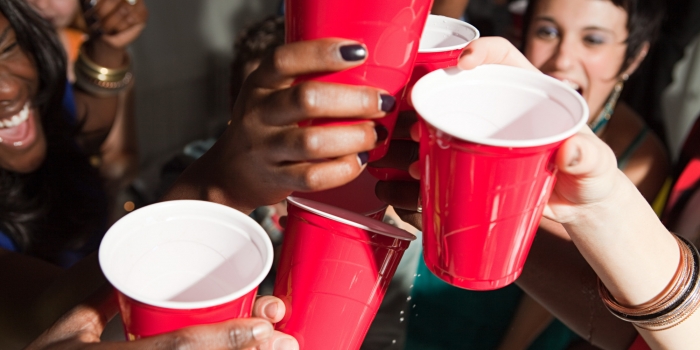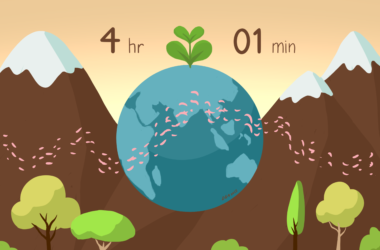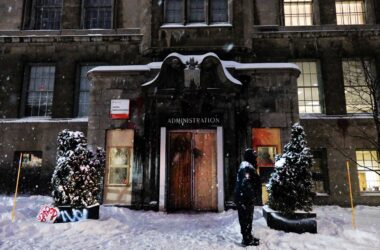I was at a café the other week, trying to decide between one croissant or two croissants, when I found myself confronted with an all-too-frequent crisis—I was faced with a familiar face, but no name to put to it. Luckily, she seemed to be in the same dilemma. We locked eyes, and without any immediately accessible fire exits or open windows, I smiled and waved tentatively. In the requisite two minutes of small talk that followed, we concluded that yeah, we'd totally met at so-and-so's party last month. At that point, I had to bite the bullet and say those five special words that have been salvaging burnt bridges since the dawn of time: "Sorry, what's your name again?"
Unsurprisingly, at so-and-so's party last month, we had both been drunk.
It's a surreal experience to soberly encounter the people that you ‘met’ while you were drunk. You may very well know their aunt’s middle name, or have an in-depth understanding about their recent break up, and yet still waver as to whether you should say “Hi” when you see them on campus. The dissonance between drunk and sober worlds is awkward at best and alienating at worst.
At McGill, this scenario is commonplace because much of social life revolves around drinking: This includes three faculty-run bars, Gerts, Open Air Pub, faculty Froshes, and a competitive drinking event for every possible charitable cause. Beyond its well-documented health and safety risks, McGill's binge drinking culture has a more subtle—but significant—social effect on the ways students interact with each other, both during and after parties. In the long run, conflating the idea of being close to people with just being drunk with people hinders the establishment of meaningful relationships.
There’s a reason that drinking and social life are so easily intertwined: In the face of a packed house party where you only know four people, a red solo cup can feel like a lifeline. For many of us, alcohol is that extra nudge needed to get out of our comfort zones and strike up a conversation with someone new.
The problem is when conversation doesn’t carry over—as it often doesn’t—to the next time you see that person while sober. Your drunk self was wearing a suit of armour when they jumped in on that chat with a friend-of-a-friend. Faced with the same situation, sober you feels sheepish and exposed. It’s hard to follow up on beer-fueled interactions when it feels like someone else—someone bolder, funnier, and probably better-looking—was the one making them. When you have a 45 minute discussion with a new acquaintance about the finer points of beer pong strategy but avoid eye contact the next time you see them, it’s as though you didn't really meet that person at all.
In the short term, this isn’t such a big deal. Feeling awkward around people now and again is a prerequisite of any undergraduate degree. But, over time, when alcohol is as central to social events as it is at McGill, being drunk can start to feel like a necessity to form meaningful connections—which aren’t so meaningful once everyone has sobered up. Rather than bringing people together, the net effect can be distancing and alienating. This has even more troubling implications if students are looking to build life-long relationships at university. In the post-secondary context, individual self-esteem and capacity for intimacy are often still crystallizing.
There’s no simple solution. So long as college students—and people beyond university, for that matter—use alcohol as a social lubricant, a social hangover is an inevitable result. But, seeing the correlation between the two is helpful: If you’re feeling disconnected from that person you were drunken best friends with three nights ago, you can then recognize that you’re not alone. Breaking the silence on that painfully awkward elevator ride or perfecting the passing-smile-and-wave on campus can feel like a Herculean task. It’s useful to remember that the other person probably feels the same way. If you make that leap of faith between drunk and sober interaction, maybe you two can talk about it.
And if you can’t remember their name, it’s okay to just ask.









